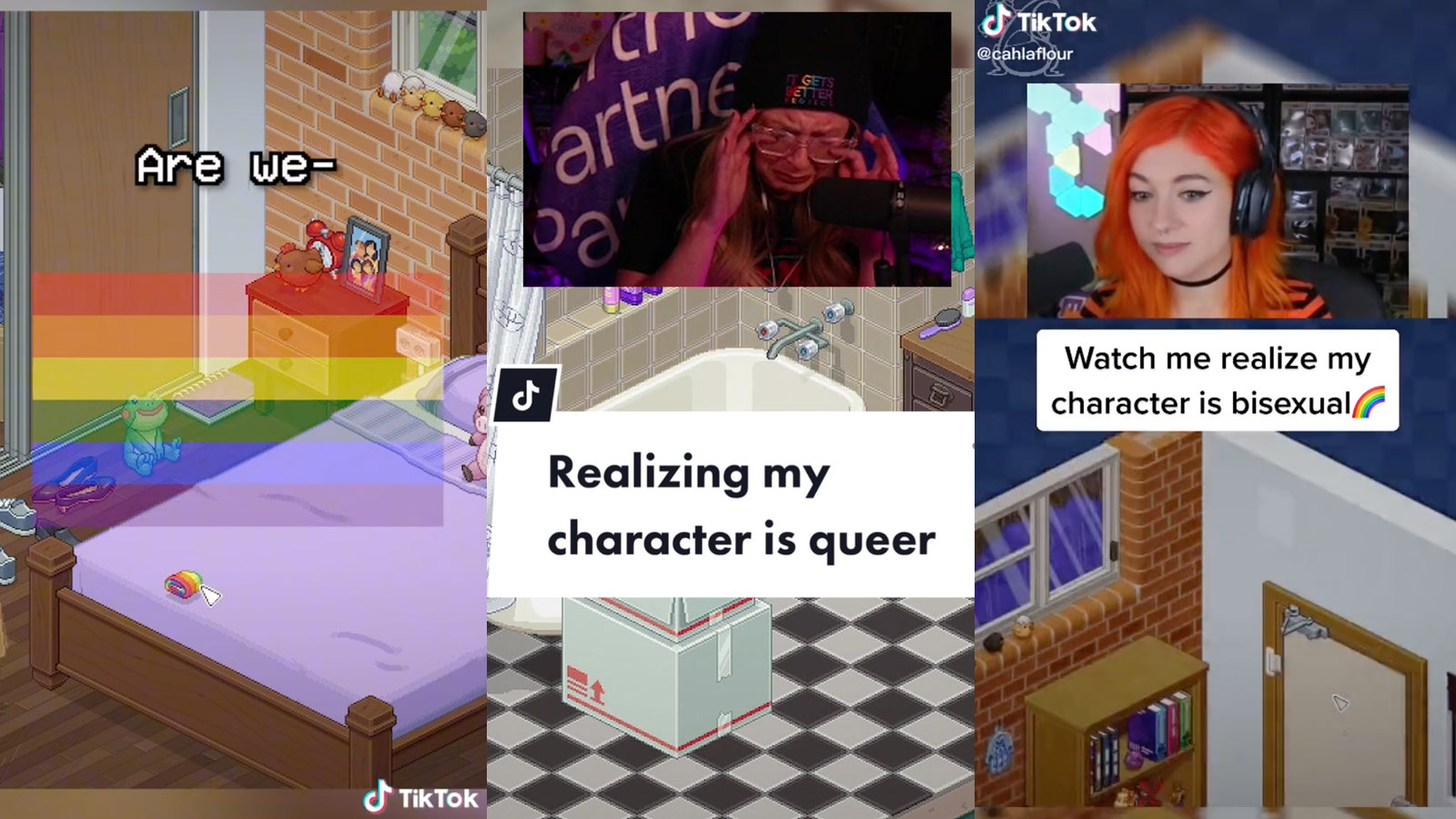The exploration of sexuality in video games is nothing new. Take The Last of Us II, Life Is Strange and Tell Me Why as prime examples. If you’re active in the gaming community, you’ll know these as primarily episodic narratives across action and horror genres. You could argue that it’s becoming increasingly commonplace for such games to explore topics around sexuality and gender. Unpacking, however, takes this into new realms.
The award-winning indie — which was released last November for PC, Xbox and Switch and is coming to PS4 and PS5 soon — is a “zen puzzle game about unpacking a life”. Yes, literally unpacking boxes and finding room for a central character’s possessions across a series of homes. That’s it. There’s no wider plot, like fending off zombies or uncovering unexplained superpowers. We never even meet the character at the heart of the game. So how can something with only the most basic functions tap into such a powerful and relatable telling of the bisexual experience?
Despite Unpacking’s lack of plot, in the four months since it was released at the end of 2021, it quickly became clear to the Twitch community that this wasn’t your average indie game. Rather, a poignant example of how uncovering our queerness can be something subtle; a series of small but significant discoveries made throughout the course of a lifetime.
Indeed, Unpacking spans 21 years of the main character’s life in eight unique levels. Upon loading the game, you – the central character – are greeted with a title screen in a dominantly pink, blue and purple colourway. What else unites those hues? The bisexual flag. These colours follow us through to the first level, where they decorate the protagonist’s childhood bedroom and quietly set the scene for things to come.
As we unpack here, we learn that our character likes video games, sports, action figures, art and stuffed animals. After all items are put in their respective places, we continue this style of play as we journey on through various life stages and uncover more about them. Subsequent levels span their first time living away from home as they move in with roommates, a move to a boyfriend’s apartment, the return home after a breakup, their first solo apartment, another shared place with another partner, and eventually, “the final home”. The last two stages are undoubtedly the most significant, as it becomes clear that we, a character widely accepted to be female, are in a relationship with a woman and are settling down with a family.
Notice the life stage after the boyfriend’s apartment? The relationship didn’t work out and, for gamers paying attention during the unpacking of the prior boyfriend level, it’s not hard to see why. The boxes contain very few of our characters’ possessions, their hobby items are scarce and they have to decide between shoving their once proudly-displayed diploma either in a closet (ahem) or under the bed. They are clearly not in a good place.
“I didn’t notice until they moved out of their boyfriend’s place and back home,” says Twitch streamer @TeaAndToastie of figuring out the character was queer. “She seemed to accept herself more and felt free to express herself; inside that relationship, she wasn’t allowed to fully be herself”. @TheLadyJordan, another Twitch streamer, questioned it a little earlier, when unpacking their partners’ possessions. “You pull out 2-in-1 shampoos at the boyfriends’ apartment, but in the future, you pull out tampons and think wait… cis men don’t wear these!”. Their reaction tells all.
Content creator @larahmp had a similar mindblown moment when she realised the character was in an established queer relationship during gameplay. “I am very oblivious, so right when I found out there was another woman moving into the apartment it finally clicked for me,” they tell us.
For many gamers, what we learn of the character’s experience – a gradual realisation, although the signs had been there all along – reflected what it was like to explore their own sexuality. It’s a sentiment content creator @thatnerdviolet couldn’t agree more with. “They found a new romance with a woman after it didn’t work out with the ex-boyfriend,” Violet tells us. “In my own experience, it was very much the same, especially as a queer woman. It felt so relatable how certain partners can suppress certain parts of yourself, and others would watch it blossom.”
In later stages of the game, we unpack more objects loaded with meaning; queer signifiers or indications of exploring a nascent sexuality – everything from plaid shirts to a favourite mug bearing the the colours of the bisexual flag. Interestingly, Twitch streamer @SammiTheSamurai pin-points the character’s D&D hobby as something that stood out to them. “Even though it’s not just an LGBTQIA+ hobby, people of the community gravitate towards it because it gives them freedom of expression,” they explain. The plantlife, meanwhile, suggested not just a feminine presence but something a little deeper to @thatnerviolet. “I loved the representation of the plants that her wife brought in with her, showing that their love was ‘growth’.” In their reaction video for this level, they tear up in response to realising the character was in a healthy queer relationship. “I wish I had this type of game growing up,” Violet sobs in the live streamed footage. “Representation is really important, you know? It’s really cool.”
Ultimately, Unpacking teaches us not to underestimate the power of what, on first glance, might be dismissed as a cute indie game. For someone on a similar journey to uncovering their queer selves, the mindful comfort Unpacking and its pixel-art aesthetic can provide makes a strong argument for not ignoring the subtlety of things – both in games and IRL.


